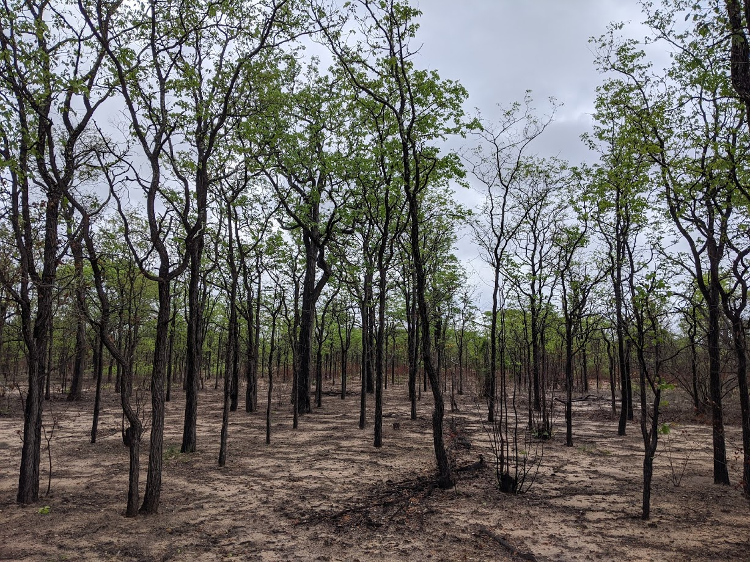Papers
Most of my papers are open access and can be accessed via Edinburgh Research Explorer here. If you have problems getting access, please try one of the links below and then email me!
I also try and blog about new papers, and post the open access links. You can see the blog here.
You can also access my papers through researchgate.
Example Publications
Wells GJ, Ryan CM, Artur L et al. (2022) Tree harvesting is not the same as deforestation. Nature Climate Change, 12, 1–2. [html]
Meyfroidt P, de Bremond A, Ryan CM, et al (2022) Ten facts about land systems for sustainability. Proceedings of the National Academy of Sciences USA, 119, 1–12. [html] Open Access
Smith, H.E., Ryan, C.M.,et al. (2019) Impacts of land use intensification on human wellbeing: Evidence from rural Mozambique. Global Environmental Change, 59, 101976. [html]
McNicol IM, Ryan CM, Mitchard ETA (2018) Carbon losses from deforestation and widespread degradation offset by extensive growth in African woodlands. Nature Communications, 9, 3045. [html] Open Access.
Rasmussen LV, Coolsaet B, Martin A … Ryan, CM. (2018) Social-ecological outcomes of agricultural intensification. Nature Sustainability, 1, 275–282. [html]
Lehmann, C.E.R. et al. (2014) Savanna vegetation-fire-climate relationships differ among continents. Science, 343(6170), pp.548–52. [html]
Ryan, CM et al (2012) Quantifying small-scale deforestation and forest degradation in miombo woodlands using high-resolution multi-temporal radar imagery. Global Change Biology. 18(1) 243. [html] [pdf]
Some papers by my (ex) students
Tripathi HG, Mzumara TI, Martin RO, Parr CL, Phiri C, Ryan CM (2019) Dissimilar effects of human and elephant disturbance on woodland structure and functional bird diversity in the mopane woodlands of Zambia. Landscape Ecology, 1–15.
Pritchard R, Grundy IM, van der Horst D, Ryan CM (2019) Environmental incomes sustained as provisioning ecosystem service availability declines along a woodland resource gradient in Zimbabwe. World Development, 122, 325–338.
Wells GJ, Stuart N, Furley PA, Ryan CM (2018) Ecosystem service analysis in marginal agricultural lands: A case study in Belize. Ecosystem Services, 32, 70–77.
Nieto-Quintano P, Mitchard ETA, Odende R, Batsa Mouwembe MA, Rayden T, Ryan CM (2018) The mesic savannas of the Bateke Plateau: carbon stocks and floristic composition. Biotropica.
Pritchard R, Ryan CM, Grundy I, van der Horst D (2018) Household wealth and human appropriation of net primary productivity in rural Zimbabwe. Ecological Economics, 146, 115–124.
Wells G, Fisher JA, Porras I, Staddon S, Ryan C (2017) Rethinking Monitoring in Smallholder Carbon Payments for Ecosystem Service Schemes: Devolve Monitoring, Understand Accuracy and Identify Co-benefits. Ecological Economics, 139, 115–127.
Jones D, Ryan CM, Fisher J (2016) Charcoal as a diversification strategy: The flexible role of charcoal production in the livelihoods of smallholders in central Mozambique. Energy for Sustainable Development, 32, 14–21.
McNicol IM, Ryan CM, Williams M (2015) How resilient are African woodlands to disturbance from shifting cultivation? Ecological Applications, 25, 2320–2336.

Photo by Peter Hargreaves.


Comments are closed
Comments to this thread have been closed by the post author or by an administrator.